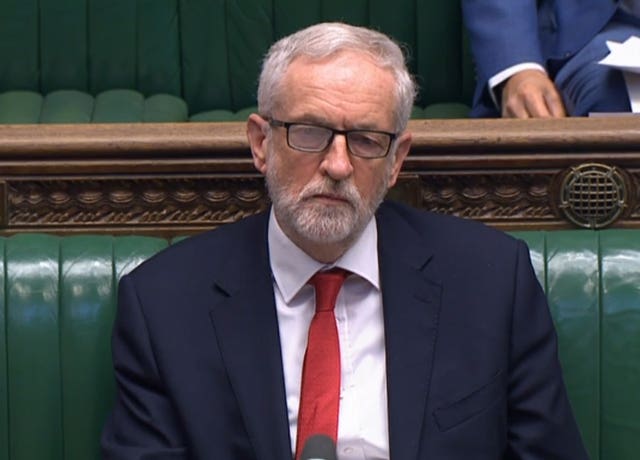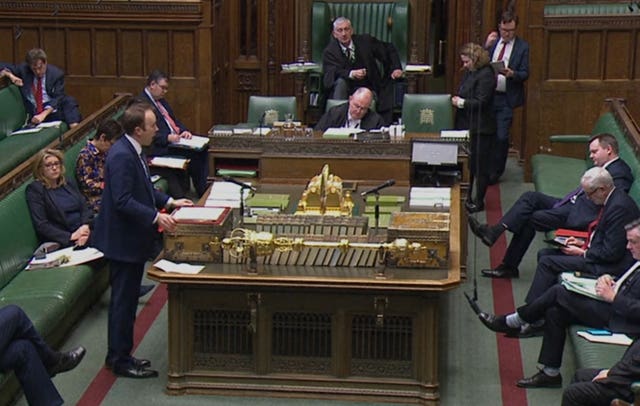Parliament expected to break a week early for Easter amid Covid-19 crisis
Commons Leader Jacob Rees-Mogg has tabled a motion that would see recess start immediately after emergency coronavirus laws are in place.

Parliament is expected to close on Wednesday evening for an early Easter recess after emergency legislation to tackle the coronavirus crisis has been approved.
Commons Leader Jacob Rees-Mogg has tabled a motion for the House of Commons to rise until April 21, in a move backed by Labour as Covid-19 swept through Westminster.
The move will see MPs break from their duties in Westminster almost a week early, with the initial recess date for Easter having been set for March 31.
In an extended Prime Minister’s Questions because of the crisis, Jeremy Corbyn backed the closure but raised concerns over Parliament’s ability to hold the Government to account during the recess.
“I understand it’s going to be possibly some time before the House meets again and there has to be scrutiny of what governments do,” he said, in his final PMQs as Labour leader.
Boris Johnson said he would work with Commons Speaker Sir Lindsay Hoyle to ensure that “Parliament is also kept informed throughout the recess”.

“The legislature must be able to continue its vital democratic functions of conducting scrutiny, authorising spending and making laws,” he added.
The Liberal Democrats’ acting leader Ed Davey backed Parliament’s physical closure but urged that a way be found to allow MPs to work remotely.
“The political parties and parliamentary authorities must now work together to urgently put in place remote working for Parliament so MPs can continue to represent our constituents, raise urgent issues with ministers and hold the Government to account for its response to this crisis,” he said.
“Businesses of all sizes have found ways to keep going through video conferencing and other technology, so it cannot be beyond the wit of Parliament to do the same.”
Communities Secretary Robert Jenrick said Parliament should “lead by example” and follow Public Health England advice on slowing the spread of the disease.

“I think it’s really important, however deep and serious this crisis, that Parliament in some form continues to operate because you, as citizens, want to ensure your MPs are holding the Government to account,” he told BBC Breakfast.
Special measures were brought in this week to stagger voting so politicians could adhere to Government advice to remain two metres away from each other in the division lobbies.
The Coronavirus Bill is expected to receive Royal Assent and become law before the end of the day after MPs from all sides agreed to let it pass without formal votes.
It will see the powers of ministers, councils, police, health professionals and coroners temporarily strengthened during the UK’s current lockdown, which is designed to stall the spread of the deadly illness.





